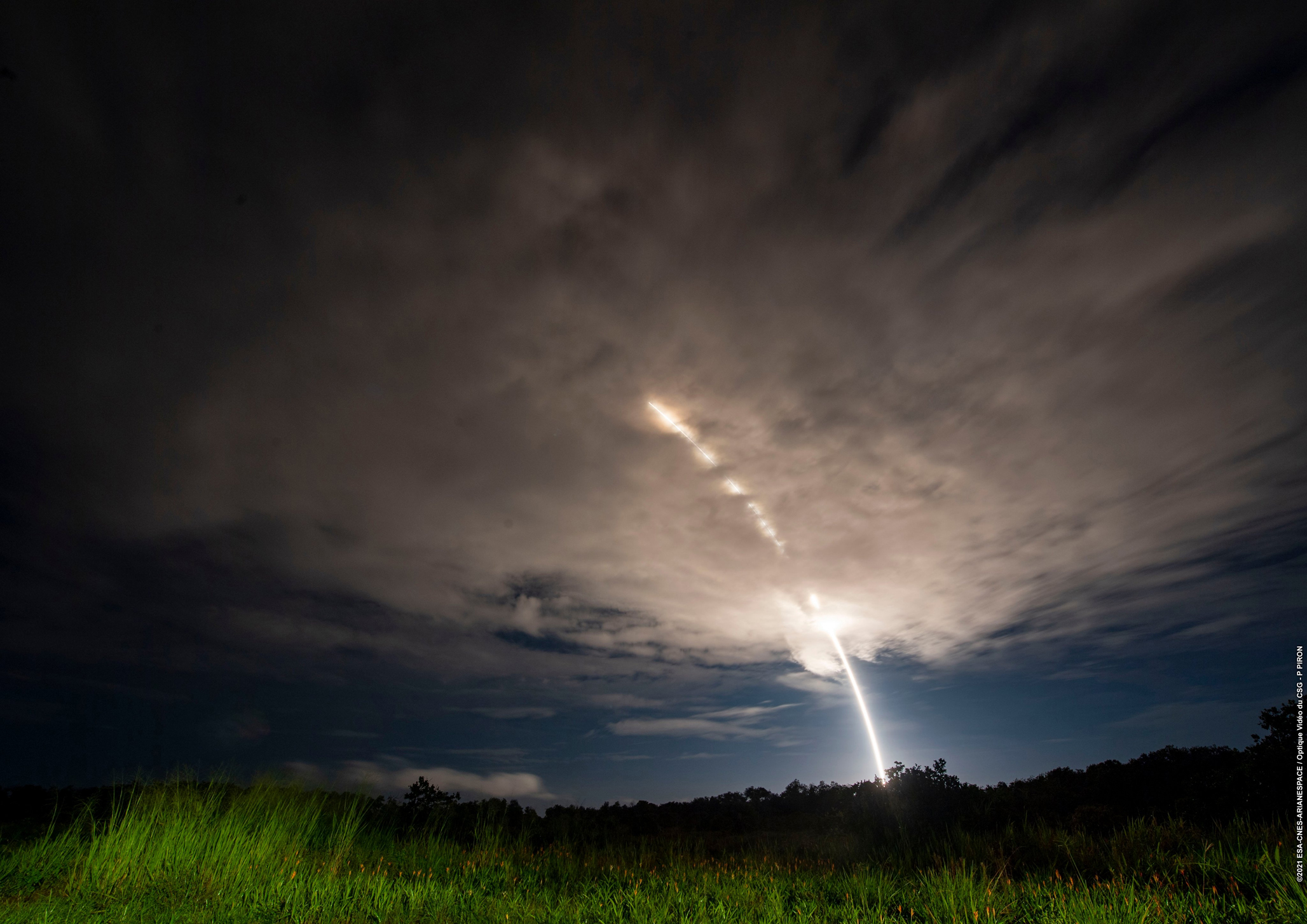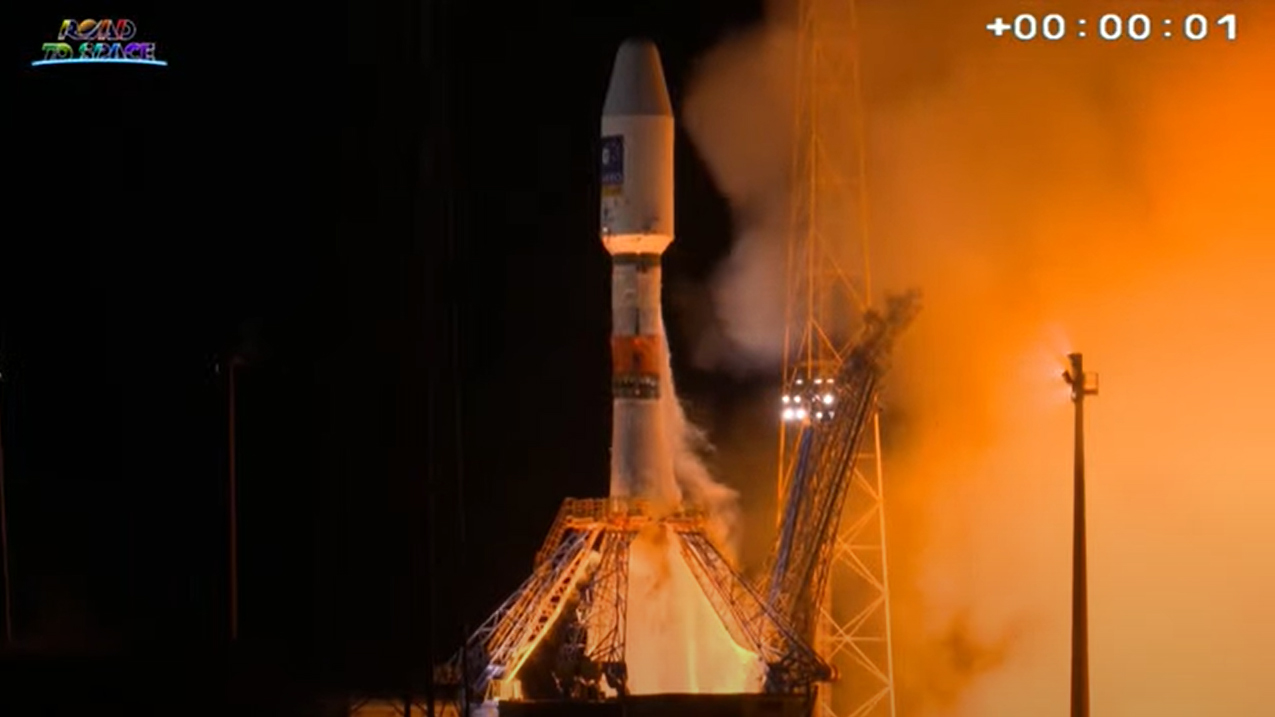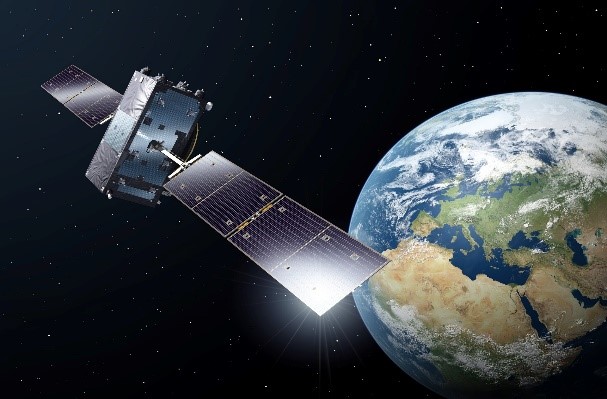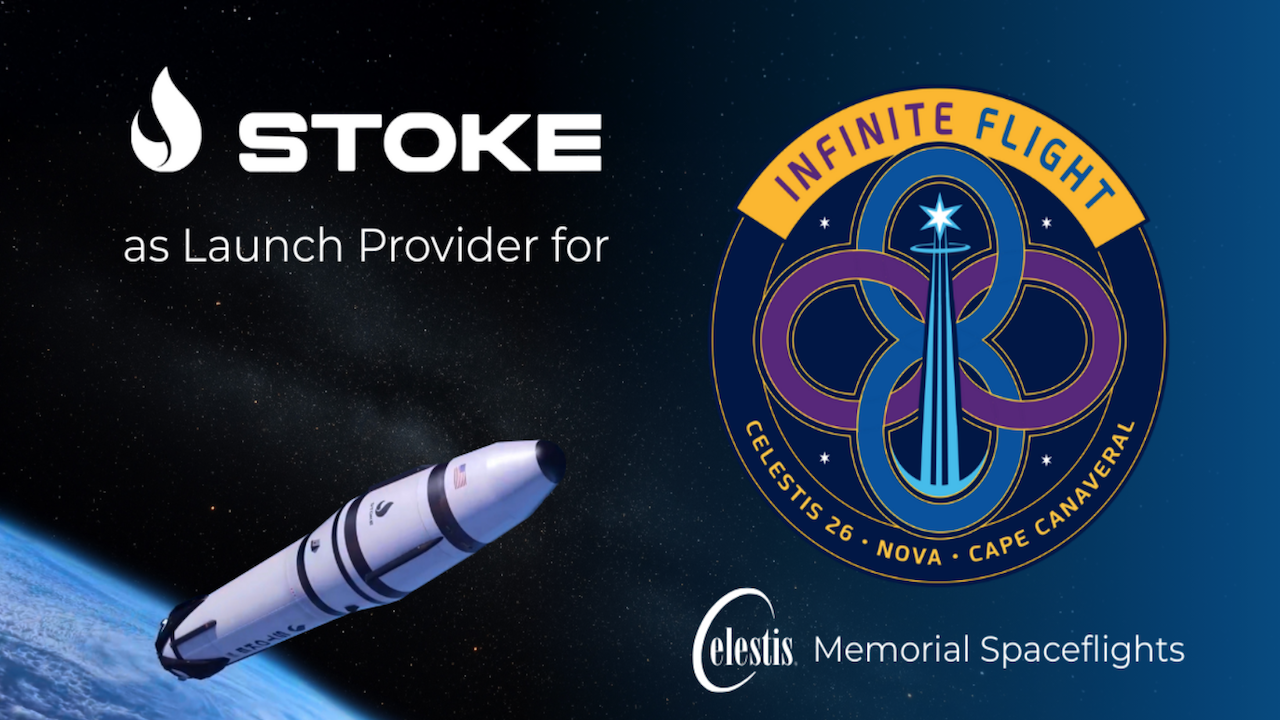Arianespace Soyuz rocket launches Galileo satellites into orbit in picturesque nighttime liftoff
The two satellites will take nearly 4 hours to reach their final orbit.
An Arianespace Soyuz rocket launched into the nighttime sky over French Guiana late Saturday (Dec. 4) to deliver two new satellites into orbit for Europe's Galileo navigation system.
The Soyuz rocket lifted off at 7:19 p.m. EST (0019 GMT) from the Guiana Space Center in Kourou, French Guiana, lighting up the evening sky with orange flames as it soared into orbit with the new Galileo navigation satellites. They were expected to reach their final orbit just under 4 hours after liftoff.
"The beast in action," Arianespace CEO Stéphane Israël wrote on Twitter of the Soyuz rocket after the launch. "On board our Soyuz, two Galileo satellites for [the European Space Agency], on behalf of the EU Commission."
The mission, if successful, the two new Galileo satellites will grow the European global satellite navigation satellite to 28 satellites. The nearly six-year-old constellation serves 2.3 billion users around the world, Arianespace said in launch documentation.
Related: How rockets work: A complete guide



Arianespace used a Soyuz rocket produced by the Progress Space Rocket Center, which is a part of the Russian space agency Roscosmos. This is the 14th time this partnership aimed to send a Galileo mission to space, Arianespace said.
The mission is being performed for the European Space Agency (ESA), on behalf of the European Commission, to bring "strategic autonomy and sovereignty to the EU [European Union] citizens and its member states," Arianespace said of the mission.
Breaking space news, the latest updates on rocket launches, skywatching events and more!
Galileo is similar to the United States Global Positioning System (GPS) and the Russian Glonass system, but aims to give Europeans a homemade alternative should one of these other systems become unavailable to them.
The 26 Galileo satellites now in orbit were launched both by Soyuz rockets and by the company's own heavy-lift rocket, Ariane 5. Arianespace plans six more Galileo satellites in the coming years using Soyuz and a next-generation rocket Ariane 6 version known as Ariane 62. The first flight of the Ariane 6 rocket is expected now in 2022, delayed from 2020.
Tonight's mission, known as Galileo FOC-M9, will be the 61st mission launched by Arianespace on behalf of ESA and will carry the 83rd and 84th satellites for the partnership. The delivered satellites will join the rest of the Galileo constellation in medium Earth orbit at 14,429 miles (23,222 kilometers), according to ESA documentation.
Follow Elizabeth Howell on Twitter @howellspace. Follow us on Twitter @Spacedotcom and on Facebook.

Elizabeth Howell (she/her), Ph.D., was a staff writer in the spaceflight channel between 2022 and 2024 specializing in Canadian space news. She was contributing writer for Space.com for 10 years from 2012 to 2024. Elizabeth's reporting includes multiple exclusives with the White House, leading world coverage about a lost-and-found space tomato on the International Space Station, witnessing five human spaceflight launches on two continents, flying parabolic, working inside a spacesuit, and participating in a simulated Mars mission. Her latest book, "Why Am I Taller?" (ECW Press, 2022) is co-written with astronaut Dave Williams.

